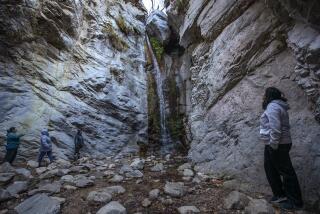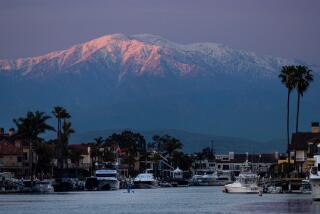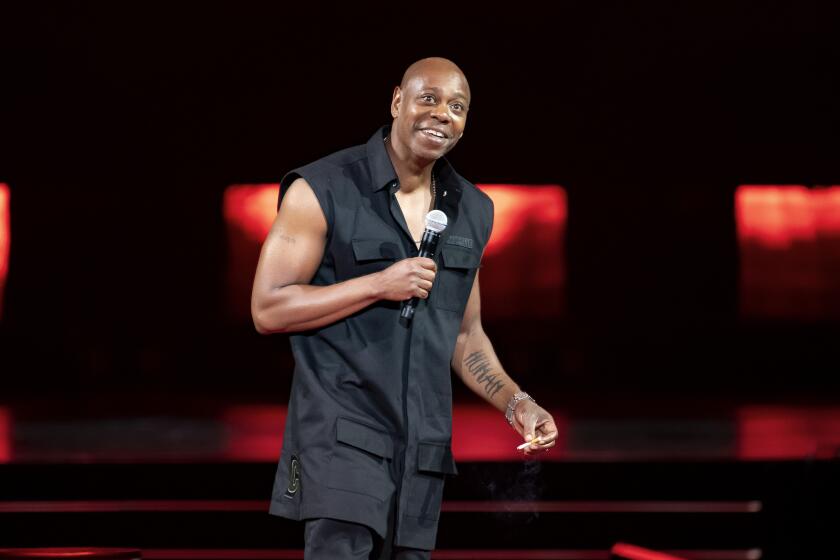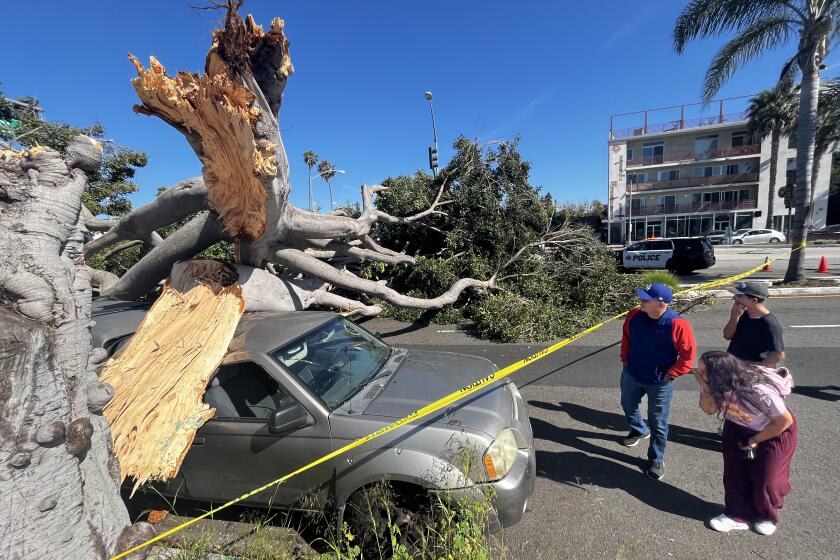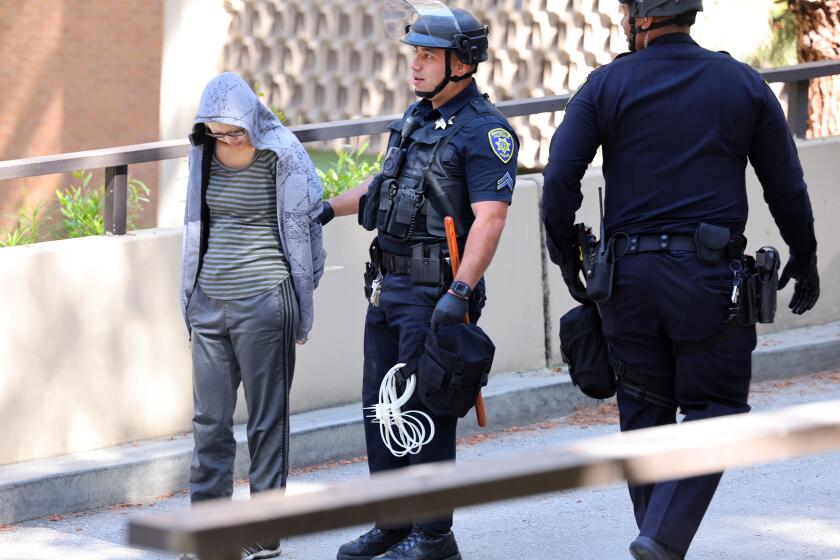In raucous tent hearing, Sen. Feinstein defends desert national monument plan
Sen. Dianne Feinstein moderated a raucous public hearing in the California desert Tuesday over her proposal to set aside three swaths of Southern California as national monuments.
The sometimes wild meeting illustrated that when it comes to public land management decisions, reaching consensus is no easier in California than it is in Washington, D.C.
At issue is a vast swath of federal land nestled among national parks, national forests and military reserves — a landscape highly regarded by renewable energy companies, mining firms, hikers and off-road enthusiasts.
Supporters of the monument designation say it would preserve the land for future generations to enjoy. Opponents argue that it would impose unwanted rules restricting their long-standing uses of the land.
SIGN UP for our free Essential Politics newsletter >>
Since 2009 Feinstein has been trying to persuade her colleagues in Congress to designate the Mojave Trails, Sand to Snow and Castle Mountains areas as national monuments.
Stymied, Feinstein is now advocating a dual track to achieve monument status: continuing her effort to bring her legislation to a vote, but also asking President Obama to take executive action to protect hundreds of thousands of acres in the California desert. She sent a letter to Obama requesting that he invoke the Antiquities Act to set aside the three areas as monuments.
The hearing was held on a still, hot day under a tent in the Whitewater Preserve, five miles up a dirt road north of the 10 Freeway outside Palm Springs.
The heat did little to damp the energy of the more than 800 people who showed up to either praise or criticize the proposal. Speakers were lustily booed or cheered.
When Feinstein mentioned the need for urgency to pass the legislation as Obama’s second term winds down, the crowd clapped wildly. Feinstein gently chided the audience for interrupting speakers, referring to the crowd as a “talky group.”
After the two hours of allotted time for public comment, Feinstein began to make closing remarks and was shouted at by opponents who protested that they had not been fairly heard.
“Calm down, calm down,” Feinstein called out. The California Democrat eventually allowed everyone who desired to speak to do so.
Monument designations can be controversial because they sometimes place restrictions on hunting, off-road recreation, mining and other long-standing uses. Feinstein’s proposal would preserve existing recreational activities, and she has asked that the president do the same.
Many opponents of the designation said that although they support some of the conservation aims, they object to executive action without widespread public hearings or congressional input.
“I am not opposed to everything in the legislation,” said Jim Bagley, former mayor of Twentynine Palms. “But I can’t support being cut out of the process.”
Feinstein said asking the president to consider monument designation was not her first choice. But in a comment that drew chuckles from the crowd for stating the obvious, she added: “It is very hard to pass a land protection bill right now.”
All of the land proposed for monument designation is in federal hands, and no property transfers would be required.
The three proposed monuments:
• The Mojave Trails National Monument, which straddles U.S. 66 between Needles and Barstow and would provide a link between Joshua Tree and the Mojave National Preserve.
• The Sand to Snow National Monument, which would rise from the Coachella Valley to Mt. San Gorgonio, at 11,503 feet the highest peak in Southern California.
• The Castle Mountains National Monument, in the high desert adjacent to the Mojave National Preserve, in an area that would include a proposed gold mine.
Feinstein was the architect of the 1994 California Desert Protection Act, which elevated Joshua Tree and Death Valley to national park status and created the Mojave National Preserve.
Her interest in protecting the desert has been enduring. Feinstein, who is from the Bay Area, spoke at length Tuesday about the value of the California desert. After listing the economic, environmental and recreational value of the region, Feinstein concluded, “What this desert carries is the tradition of the West.”
More to Read
Start your day right
Sign up for Essential California for news, features and recommendations from the L.A. Times and beyond in your inbox six days a week.
You may occasionally receive promotional content from the Los Angeles Times.
